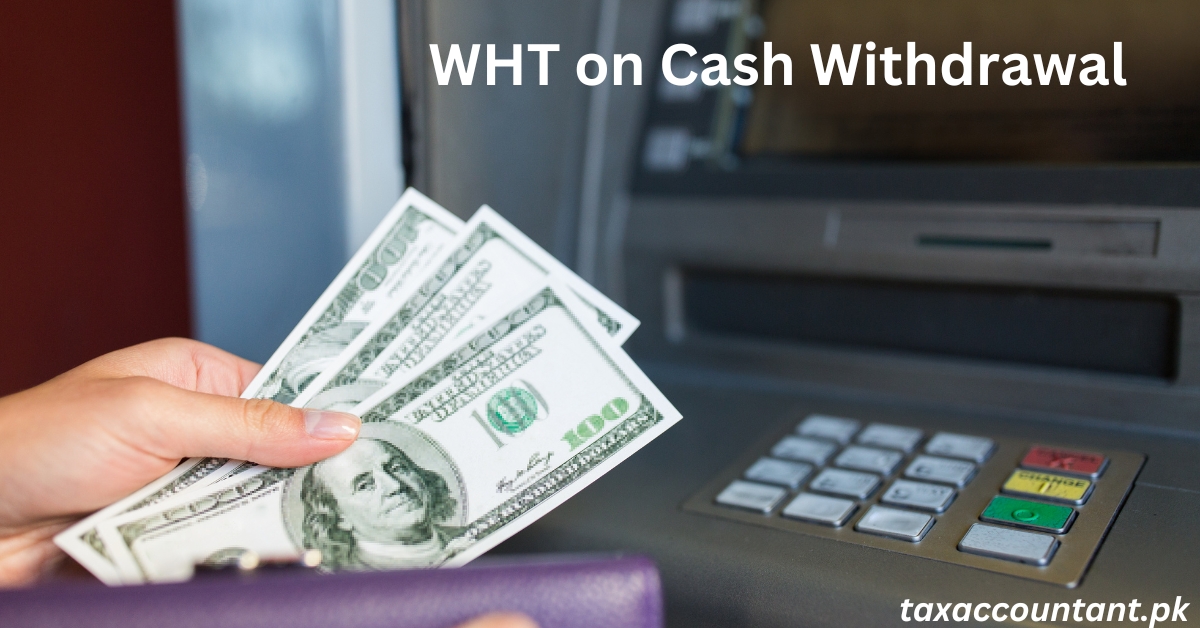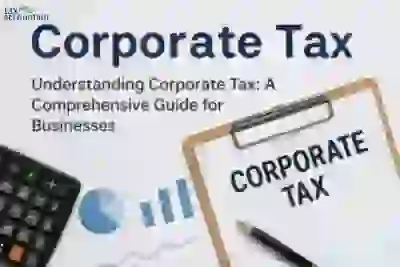The imposition of withholding tax (WHT) on cash withdrawals in Pakistan has become a significant aspect of the country’s tax system, particularly affecting individuals who are not registered as active taxpayers.
In this blog article, we will explore about the details of the WHT on cash withdrawals, its implications for non-filers, and the broader context of taxation in Pakistan.
What is Withholding Tax?
Withholding tax is a form of income tax that is deducted at the source of payment. In the context of cash withdrawals, banks are required to deduct a certain percentage from the amount withdrawn by individuals who are not on the Active Taxpayer List (ATL). This mechanism aims to ensure that individuals contribute to the national revenue even if they do not file tax returns.
Key Features of WHT on Cash Withdrawals
Current Tax Rates
As per the Finance Act 2023, any cash withdrawal exceeding PKR 50,000 in a single day by non-filers is subject to a 0.6% withholding tax. This tax applies to all forms of cash withdrawal, including those made through ATMs and credit cards. If an individual withdraws more than PKR 50,000 in a day, the tax is applied to the entire amount withdrawn, not just the portion exceeding PKR 50,000.
Proposed Changes
Recently, there have been discussions about increasing this withholding tax rate from 0.6% to 0.9% for non-filers as part of efforts to generate additional revenue for the government. This proposed change aims to further incentivize individuals to register as taxpayers and comply with tax regulations.
Implications for Non-Filers
Financial Impact
The WHT serves as a financial deterrent for non-filers. It increases the cost of withdrawing cash, thereby encouraging individuals to either register as taxpayers or limit their cash transactions. For those who do not file taxes, this means that every time they withdraw cash exceeding PKR 50,000, they incur an additional cost which can accumulate over time.
Encouraging Tax Compliance
The primary goal of imposing WHT on cash withdrawals is to broaden the tax base in Pakistan. With millions registered with the Federal Board of Revenue (FBR), only about half actively file their tax returns. The government hopes that by penalizing non-compliance through such taxes, more individuals will be motivated to register and file their taxes.
Historical Context
Evolution of Withholding Tax Regulations
The WHT on cash withdrawals was first introduced through the Finance Act of 2005, initially set at a lower rate and threshold. Over the years, amendments have been made to adjust these figures in response to economic conditions and revenue needs:
- 2005: Introduction of WHT at 0.5% for withdrawals above PKR 25,000.
- 2019: The tax for filers was abolished; however, non-filers continued to pay 0.6%.
- 2021: Complete abolition for non-filers was proposed but later reintroduced in 2023.
How WHT Affects Banking Transactions
Transaction Costs
The imposition of WHT has led to increased transaction costs for non-filers, making cash transactions less appealing compared to digital banking options. As a result, many individuals are encouraged to use electronic payment methods or bank transfers which do not incur similar taxes.
Impact on Cash Economy
The government’s strategy includes discouraging a cash-based economy by making it more expensive to withdraw large sums of money without proper documentation or registration as a taxpayer. This shift aims to promote transparency and accountability within financial transactions across Pakistan.
Practical Considerations for Withdrawals
Daily Withdrawal Limits
Most banks in Pakistan impose daily withdrawal limits that vary depending on the type of account and card used. For example:
- National Bank of Pakistan (NBP): PKR 20,000
- Habib Bank Limited (HBL): PKR 50,000
- MCB Bank: PKR 25,000 – PKR 50,000 depending on account type.
These limits mean that individuals should plan their withdrawals accordingly, especially if they anticipate needing large sums that could trigger withholding taxes.
Safety Measures at ATMs
Using ATMs in Pakistan comes with certain risks including potential fraud or data theft. Users are advised to take precautions such as:
- Using ATMs located in well-lit and secure areas.
- Covering the keypad while entering PINs.
- Regularly monitoring bank statements for unauthorized transactions.
The withholding tax on cash withdrawals in Pakistan represents a critical component of the government’s strategy to enhance tax compliance and expand its revenue base. While it poses challenges for non-filers by increasing transaction costs, it also serves as an incentive for individuals to become active participants in the formal economy through tax registration and compliance.
Are there any exemptions for certain individuals or groups regarding the new cash withdrawal tax?
Yes, there are specific exemptions regarding the withholding tax (WHT) on cash withdrawals in Pakistan, particularly under the provisions outlined by the Federal Board of Revenue (FBR). Here are the key exemptions:
Exemptions from Withholding Tax on Cash Withdrawals
- Federal and Provincial Governments: Withdrawals made by the federal government or any provincial government are exempt from WHT.
- Foreign Diplomats: Individuals associated with foreign diplomatic missions in Pakistan are also exempt from this withholding tax.
- Income Exemption Certificate Holders: If an individual can produce a certificate from the commissioner stating that their income during the tax year is exempt, they will not be subject to WHT on cash withdrawals.
Current Tax Rate for Non-Filers
As per the latest regulations introduced through the Finance Act 2023, non-filers who withdraw cash exceeding PKR 50,000 in a single day are subject to a withholding tax rate of 0.6% on the entire amount withdrawn. This regulation applies to all cash withdrawals made through ATMs or credit cards as well.
Implications of These Exemptions
These exemptions are designed to facilitate certain groups while ensuring that those who are not compliant with tax regulations contribute to national revenue. The FBR’s approach aims to encourage individuals to register as taxpayers and comply with tax laws while providing necessary accommodations for specific entities and individuals who may not be in a position to pay this tax.
In summary, while non-filers face a withholding tax on cash withdrawals, certain groups such as government entities, foreign diplomats, and those holding an exemption certificate are not subjected to this tax.





